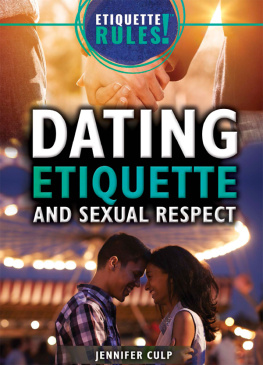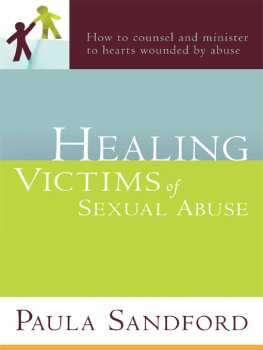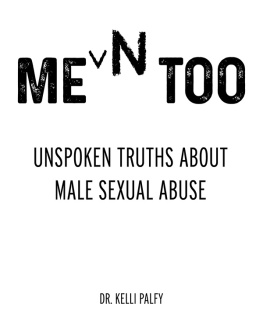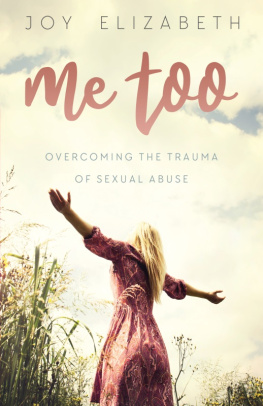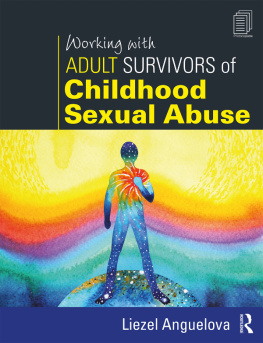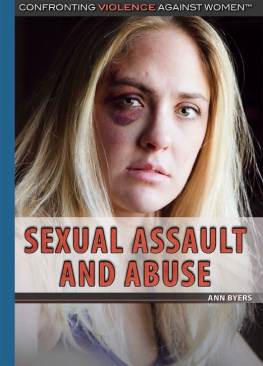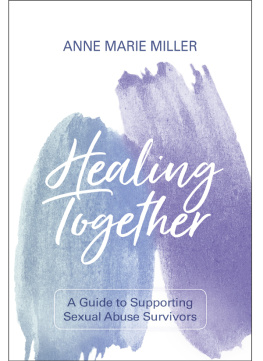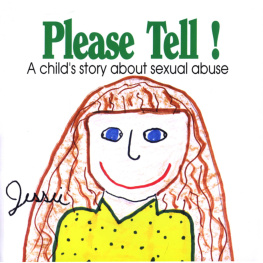
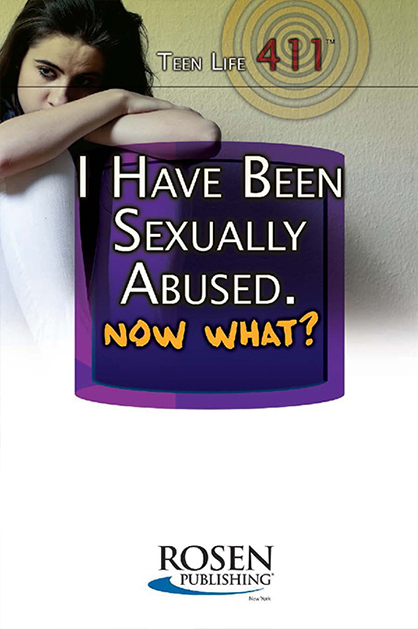
Published in 2015 by The Rosen Publishing Group, Inc.
29 East 21st Street, New York, NY 10010
Copyright 2015 by The Rosen Publishing Group, Inc.
First Edition
All rights reserved. No part of this book may be reproduced in any form without permission in writing from the publisher, except by a reviewer.
Library of Congress Cataloging-in-Publication Data
Culp, Jennifer.
I have been sexually abused. Now what?/Jennifer Culp. First edition.
pages cm.(Teen life 411)
Includes bibliographical references and index.
ISBN 978-1-4777-7976-7 (library bound)
1. Sexually abused teenagersJuvenile literature. 2. Sexually abused teenagersRehabilitationJuvenile literature. 3. Sexual abuse victimsJuvenile literature. I. Title.
RJ507.S49C85 2015
618.9285836dc23
2014011044
I NTRODUCTION
S exual abuse of children, preteens, and teenagers is shockingly common. Child sexual abuse is underreported and grossly under-prosecuted, but research and education are helping to change that. In the past, it was often thought that claims of sexual abuse were made up or that false memories of abuse were implanted in children by mental health professionals. Another widespread myth related to sexual abuse is the cycle of abuse, the notion that people who were sexually abused as children grow up to become abusers themselves. Both of these ideas are false. It is incredibly rare for young people to fabricate stories of sexual abuse; in fact, survivors are far more likely to lie and claim that they havent been abused when, in fact, they have. Current research shows that the cycle of abuse is a myth, too. The huge majority of abuse survivors do not grow up to perpetuate abuse themselves, and most perpetrators were not sexually abused in the past.

If you have been sexually abused, it doesnt mean that there is something wrong with you or that you deserved the abuse. Sexual abuse is the fault of no one but the perpetrator.
So whats true about sexual abuse? For starters, the vast majority of sexual abuse victims under the age of eighteen know and trust the perpetrator before being abused. Stranger danger is rare; sexual abuse is far more likely to be committed by a parent, stepparent, teacher, coach, close family friend, or even a teenager or kid who is friends with or related to the victim. Because of this and other factors, such as the way the brain reacts in response to trauma, it can be very difficult for sexual abuse survivors to come forward and disclose their abuse. Sometimes a phenomenon called dissociation occurs, where, in order to protect itself, the victims brain separates from her body during instances of abuse, making her feel as though she is somewhere else. This typically leaves the survivor with no memory of the abuse, until it reemerges later in life in the form of scary flashbacks or sensory memories. Sexual abuse is traumatizing and may lead to further long-term symptoms such as anxiety, depression, post-traumatic stress disorder, eating disorders, and alcohol or drug abuse. Sexual abuse is known to increase suicidal thoughts and self- harming behaviors.
Sexual abuse is one of the most awful things one human being can do to another, but it doesnt have to break you. When it comes to describing people who have been sexually abused, the term survivor is preferred over victim because thats what you are: if you have lived through sexual abuse, you have survived something terrible and you are still standing. If you have been sexually abused, someone has done something awful to hurt you, but it does not mean that you are broken. It doesnt mean that you deserve bad things or that it was your fault (being sexually abused is never your fault). It doesnt mean that there is anything wrong with you, and it doesnt mean that you are doomed to a dark, dysfunctional life. Like countless others who have gone before you, you can seek help, and you can heal from the pain and hurt someone else inflicted on you.
CHAPTER
SEXUAL ABUSE: THE FACTS
T he term child sexual abuse encompasses any action perpetrated on a minor with the intent of arousing the perpetrator in a sexual fashion. That doesnt mean that this kind of abuse happens only to very young children. The inclusion of the word child merely distinguishes the fact that the abuse happened to someone under the age of eighteen.
Sexual abuse can happen to infants, very small children, preteens, and teenagers. It may take different forms: verbal, voyeuristic, touching, or some combination of all three.
Sexual abuse may be committed by a stranger, but it is far more likely to be committed by someone the survivor knows, such as a teacher, coach, parent, or relative. In fact, more than 90 percent of sexual abuse victims under the age of twelve know the perpetrator, who is often a family member. When it comes to sexual assault victims between the ages of twelve and eighteen, more than 80 percent have a prior relationship with the perpetrator.
In total, about 44 percent of all reported rape victims in the United States are under the age of eighteen. Though child sexual abuse is most often committed by adult offenders, it may also be committed by a teenager or even a kid. Teenage girls between the ages of sixteen and nineteen are a particularly vulnerable population, being four times more likely than the general population to become victims of rape, attempted rape, or sexual assault.

Sexual abuse is often committed by an adult the survivor knows well, which can make it very difficult to trust others. The help of caring, qualified professionals and loved ones, however, is vital to healing.
YOU ARE NOT ALONE
In all cases, regardless of the specifics, sexual abuse is wrong. Whatever the circumstances, the perpetrator, not the victim, is solely at fault.
If you have been sexually abused, you are not alone. Sadly, sexual abuse of people under eighteen is common. Information provided by the Rape, Abuse & Incest National Network (RAINN) and U.S. Department of Justice statistics show that 29 percent of sexual assault and rape victims are between the ages of twelve and seventeen, and 15 percent are under the age of twelve. Further data reported by the United States Administration for Children and Families shows that more than 62,500 minors were sexually abused in 2012, and that only includes cases that were reported to Child Protective Services.
Many instances of sexual abuse go unreported, for a variety of reasons. For instance, a very young child who is sexually abused might not understand what is happening or realize he needs to ask for help. Feelings of confusion and shame could lead a teenager who has been sexually abused to keep quiet rather than risk becoming the subject of gossip.
Yet another person who has been sexually abused may be reluctant to ask for help because she fears she wont be believed, is afraid of getting in trouble, or is afraid of getting the perpetrator in trouble, especially if the abuse occurred at the hands of a loved one.
Survivors of sexual abuse often attempt to minimize or deny the abuse after it happens in order to cope. Other survivors may not even consciously remember being sexually abused due to trauma or dissociation during abuse. All of these reactions are normal.
Next page

